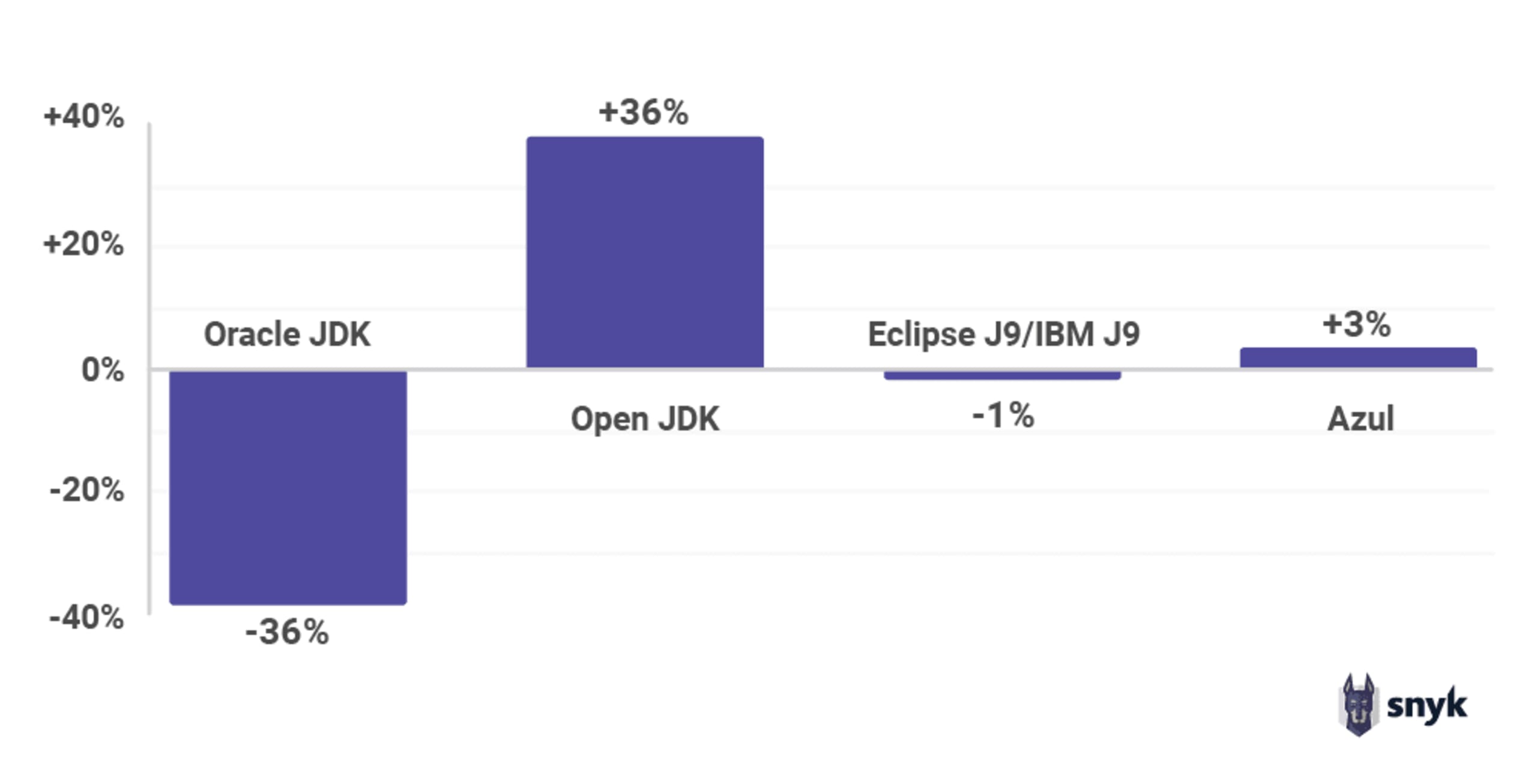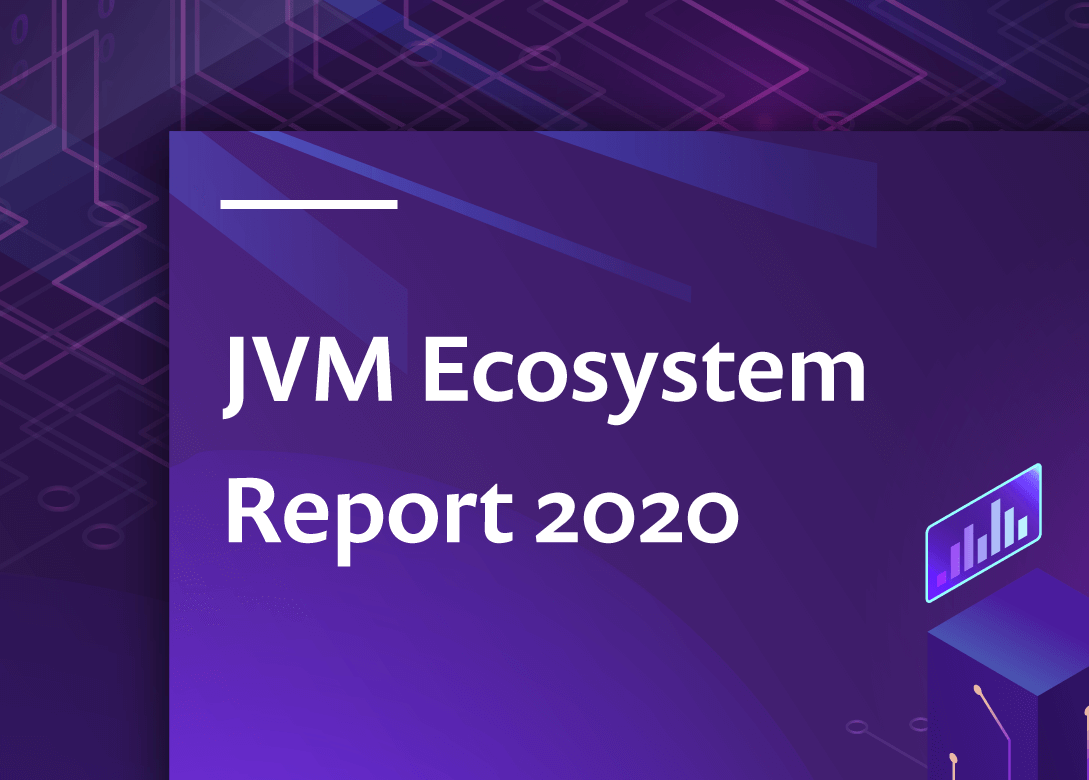36% of developers switched from Oracle JDK to an alternate OpenJDK distribution, over the last year
5. Februar 2020
0 Min. LesezeitWelcome to our annual JVM ecosystem report! This report presents the results of the largest annual survey on the JVM ecosystem, showing results from the survey gathering over 2000 responses in the second half of 2019. We would like to thank everyone who participated and offered their insights on Java and JVM-related topics.
This report is split into six posts:
36% of developers switched from Oracle JDK to an alternate OpenJDK distribution, over the last year
64% of developers report that Java 8 remains the most often used release
Kotlin overtakes Scala and Clojure, to become the 2nd most popular language on the JVM
Spring dominates the Java ecosystem with 60% using it for their main applications
IntelliJ IDEA dominates the IDE market with 62% adoption among JVM developers
We also have a lovely handcrafted pdf report which contains all of this information in one downloadable place.
Which Java vendor's JDK do you currently use in production for your main application?
With Oracle changing the licensing on their JDK versions, we kick off this report with the answer to an important question — which JDK are developers using for their main application?
According to the respondents, although OracleJDK is still dominant with 34%, there is a huge shift towards other OpenJDK providers. 1 in4 developers chooses the Adopt OpenJDK distribution. It's also interesting to note that the Oracle JDK still uses the OpenJDK under the covers, despite carrying a commercial license.

Comparing this to the results from last year, where Oracle JDK accounted for 70% and OpenJDK for 21% of the preferred JDK distribution, we notice a major shift, with a 72% swing from Oracle JDK to alternate OpenJDK providers.

Are you currently paying a vendor for JDK support?
When we look at the responses to this question, the shift we saw earlier, from Oracle JDK to OpenJDK, makes more sense since the large majority of the participants (86%) do not wish to pay for JDK support. In fact, only 9% currently pay for support.

Who do you pay? When developers do choose to pay for JDK
When developers do choose to pay for JDK support, Oracle is still the clear winner while the other three vendors share the remainder of the market rather equally. In retrospect, this means that if only 9% of developers pay for JDK support (as seen in question 2), the total population of developers that pay Oracle is 5% — or 1 in 20 developers.

Did the support and release cadence changes, since JDK 9, affect your decision to pay for support?
Starting with JDK 9, a new Java version is being released every March and September, which isa major change to the JDK release cadence. This impacts the update strategy for many users as this 6-month release cadence affects the support cycle as well. Moreover, this change has an impact on security too, with security patches not being backported to older versions.
According to our survey, for more than a third of the developers, the new cadence influenced their decision to pay for support. At least 41% of the respondents claim that the changes made to the release cadence and support played some role in that decision.

Will you consider paying for JDK support in the future, based on the latest release cadence changes?
The majority of the developers who participated in this survey, don't believe they will change their minds about paying JDK support in the future. As the community involvement is bound to grow in future JDK releases, it is possible that, in a year from now, we see a decrease in the number of developers who consider paying for JDK support. Although only 7% of the respondents are willing to pay for support in the future, a significant 19% is still considering the possibility.

There’s more to this report! Which section do you want to read next?
36% of developers switched from Oracle JDK to an alternate OpenJDK distribution, over the last year
64% of developers report that Java 8 remains the most often used release
Kotlin overtakes Scala and Clojure, to become the 2nd most popular language on the JVM
Spring dominates the Java ecosystem with 60% using it for their main applications
IntelliJ IDEA dominates the IDE market with 62% adoption among JVM developers
